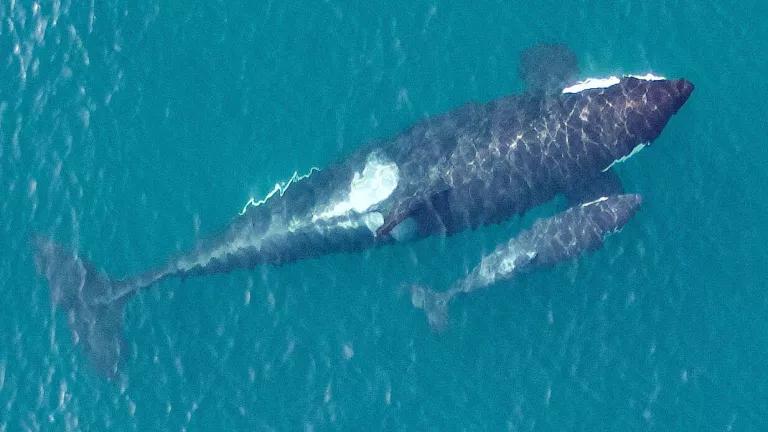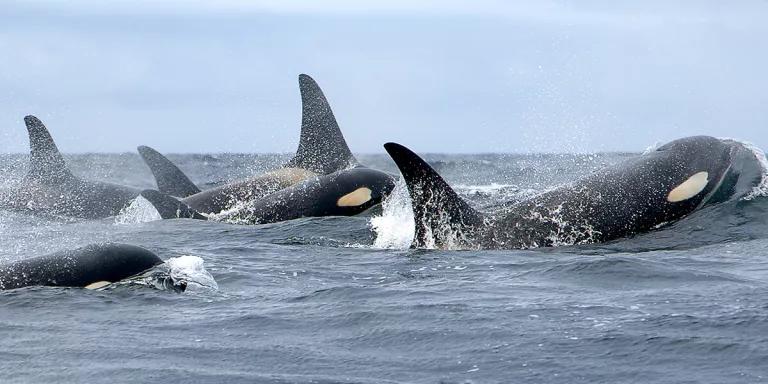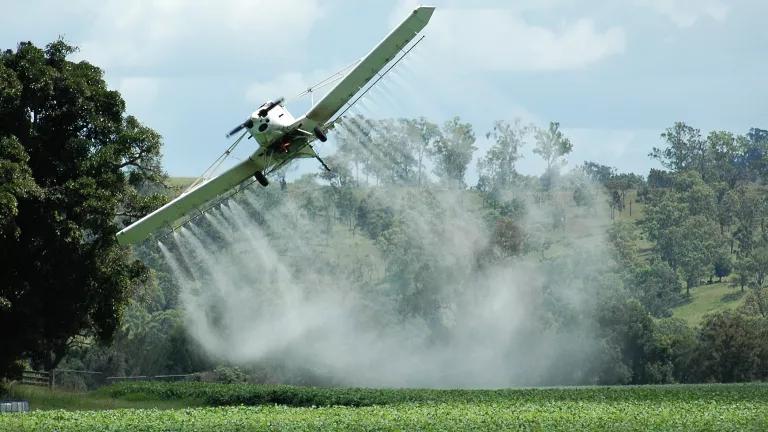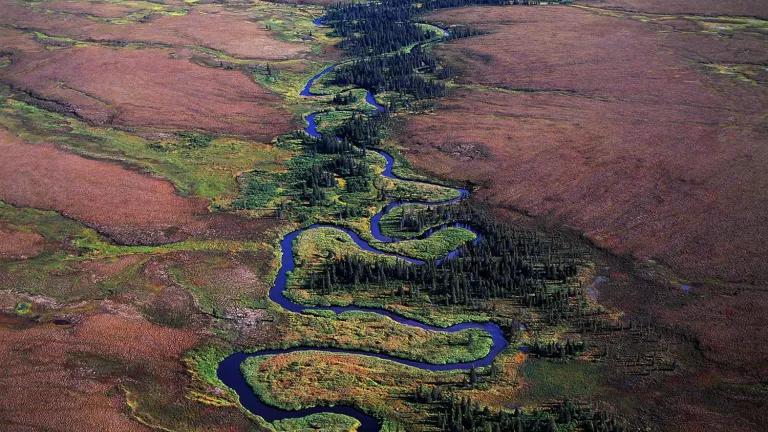Kinder Morgan Risks Endangered Species Act Lawsuit
Today, NRDC handed Kinder Morgan one more reason to abandon its ruinous pipeline expansion project. The pipeline would illegally harass and risk harm to the endangered Southern Resident orcas in violation of the U.S. Endangered Species Act.

Credit: NOAA
Today, NRDC handed Kinder Morgan one more reason to abandon its ruinous pipeline expansion project. The hundreds of ocean tankers the project would require to transport highly hazardous dilbit away from its terminus would travel through U.S. waters and Southern Resident orca critical habitat, and that, we warn in our letter, would illegally harass and risk harm to the endangered orcas in violation of the U.S. Endangered Species Act.
In April 2018, Kinder Morgan paused work on its planned Trans Mountain pipeline expansion (a pipeline that would carry tar sands dilbit from Albert to British Columbia) due to mounting political heat and uncertainty. The pipeline has faced powerful opposition, including from British Columbia and a formidable lawsuit brought by First Nations and local governments. In announcing the litigation, Coldwater Indian Band Chief Lee Spahan said, "It is our Standing Rock. It is about our drinking water."

Neskonlith Chief Judy Wilson and other pipeline protesters
This project might start in Canada, but if completed, it would directly impact U.S. territorial waters and species. The Trans Mountain expansion is projected to create a surge of tanker traffic from about 60 to more than 400 vessels annually passing through Haro Strait and the Strait of Juan de Fuca (just east of Washington State’s San Juan Island) as the flow of dilbit from the Canadian tar sands increases from 300,000 to 890,000 barrels per day.
Kinder Morgan put out a statement in April saying it “will consult with stakeholders until May 31, 2018,” before resuming construction. That deadline is rapidly approaching, and the stakes couldn’t be higher.
We let Kinder Morgan CEO Steve Kean know that if the company resumes construction of the pipeline, Kinder Morgan will have to answer to U.S. law too. The Endangered Species Act is one of the world's strongest species protection laws. The Act was passed by the U.S. Congress “to halt and reverse the trend toward species extinction, whatever the cost.” Tennessee Valley Auth. v. Hill, 437 U.S. 153, 184 (1978). And that makes sense. Because no dollar figure could ever forgive or heal the loss of the Southern Resident orcas.
The transboundary Southern Resident orcas are already besieged by a dangerous shortage of their preferred prey (Chinook salmon), ocean vessel noise and traffic, and high toxic loads. There are only 76 of them left. This family of orcas simply cannot withstand another threat.

Credit: Holly Fearnbach, NOAA
The Pacific Northwest and its orcas are no strangers to the danger of oil tankers. In 1984, the Exxon Valdez oil spill expelled 11 million gallons of oil into Prince William Sound, Alaska. The spill lasted numerous days, and in the process killed thousands of marine mammals. Of the marine mammals killed, 22 of them were Chugach Transient orcas. Nine of these orcas disappeared immediately after the spill, and six more disappeared shortly after. Today, the Chugach Transient orcas are functionally extinct.
Another Alaskan resident orca pod—very similar to the Southern Residents—lost 14 of its 36 members after the oil spill. Thirty-four years later, that population still hasn’t fully recovered.
Craig Matkin, founding member and director of the North Gulf Oceanic Society, has been studying orca in Alaska for decades. He remembers the Exxon spill: "It was unthinkable that an entire transient population would be sent on a path toward inevitable extinction by a single mistake on an oil tanker. But it’s what happened and I have spent years before and after the spill documenting this tragic event. A similar fate can befall these unique, endangered resident orcas in Puget Sound and the more oil development and transport, the more likely the chance of it occurring,” Craig Matkin warns.
We here at NRDC are no strangers to big battles. We stand with our friends across the border, stand with the First Nations, and stand with the government and citizens of British Columbia who are fighting to stop this pipeline. History says accidents always happen. To allow this pipeline to be built would turn our back on past fossil fuel disasters, violate indigenous people’s rights again, push us closer to global climate change disaster, and trade away a family of orcas for oil.
That would be wrong. We also think it’s illegal.



